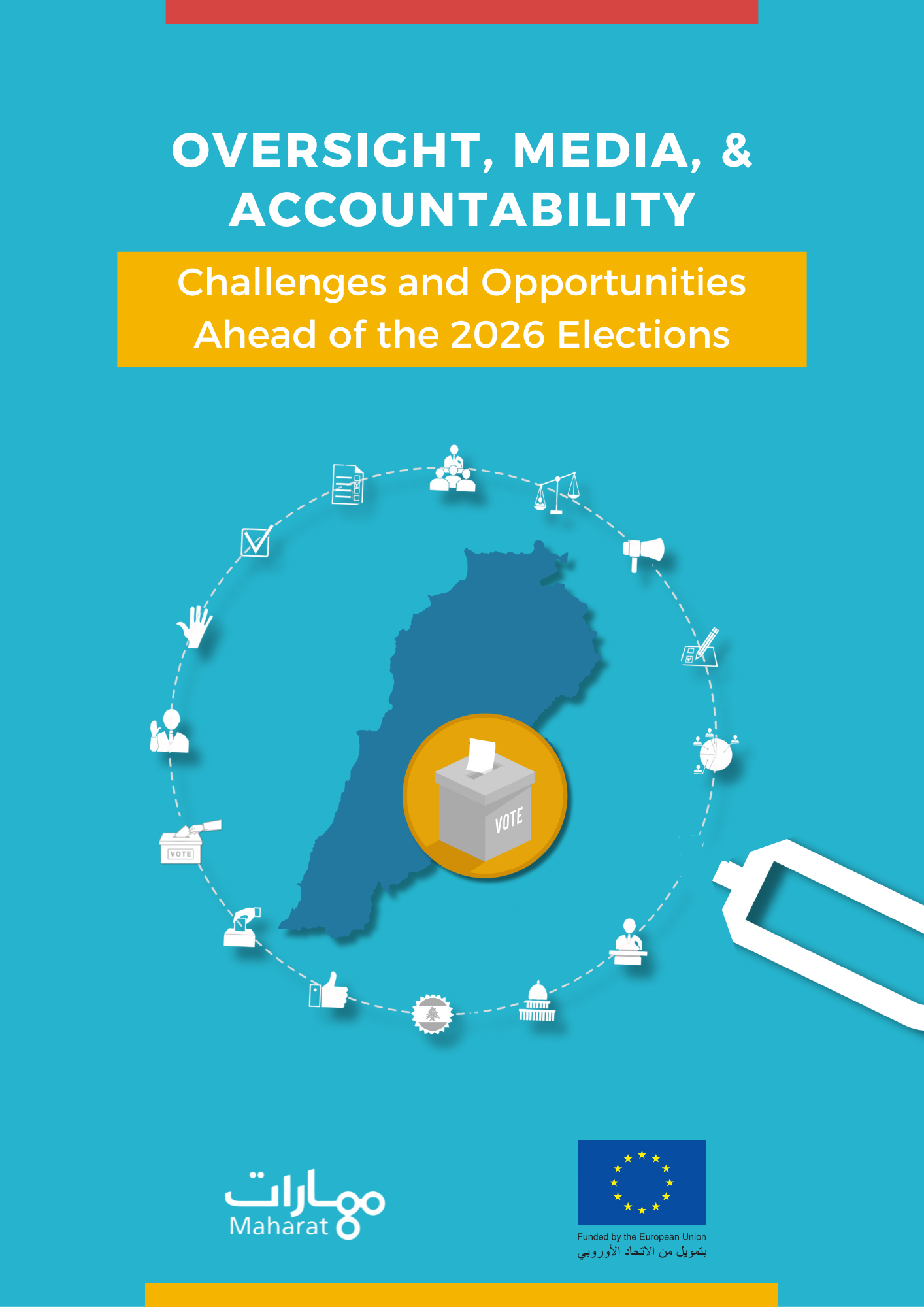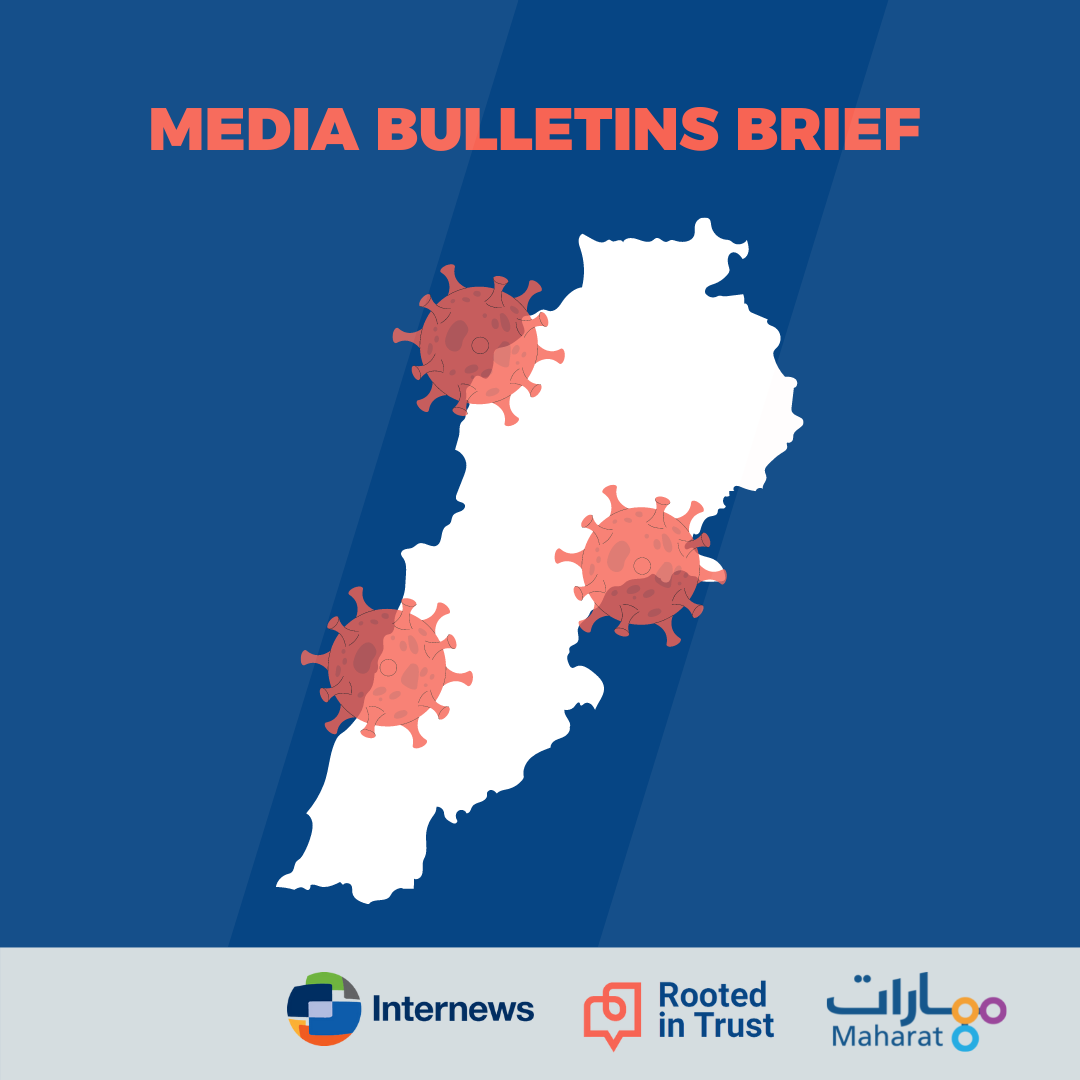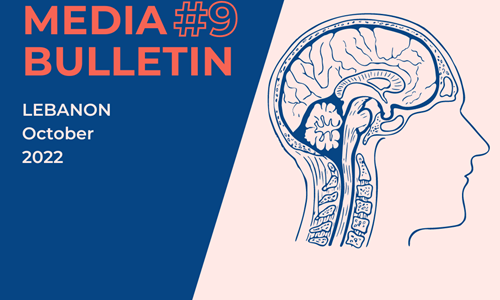
Oversight, Media, and Accountability: Challenges and Opportunities Ahead of the 2026 Elections
As May 2026 parliamentary elections approach, Maharat Foundation is releasing a report titled “Oversight, Media, and Accountability: Challenges and Opportunities Ahead of the 2026 Elections.”
The report is based on key findings from the monitoring of Lebanon’s 2022 parliamentary elections and the lessons learned, as documented by local civil society organizations involved in election observation, international monitoring missions, and the Supervisory Commission for Elections. It also draws on the European experience and on the report “Supervision and Monitoring of the Electoral Process” prepared by researcher Adriana Mutu from the European Media and Journalism Research Center, published in collaboration with Maharat Foundation.
Below are the key messages highlighted in this report:
1. Immediate Appointment of the Commission and a Ready Work Plan:
The government must appoint the members of the commission as soon as possible and provide them with the necessary funding and independent administrative structure, so that the commission can operate effectively before the elections. The delay in forming the commission in 2022—when it began operating three and a half months after the call for elections—weakened its ability to monitor and enforce compliance with the law.
2. Independence of the Commission Is Essential:
A supervisory commission cannot perform its role seriously unless it is independent. Meaningful reform requires ensuring independent legal status, administrative and financial autonomy, and a dedicated budget line within the national budget.
3. Real and Deterrent Powers:
The commission needs clear and direct powers to impose sanctions on violators, whether media outlets or candidates. These include imposing fines and the possibility of disqualifying candidates in cases of serious violations.
Even in the absence of comprehensive legal reform granting the commission direct executive powers, it can still play a vital role by:
- Setting clear and public standards for electoral media and advertising, including differentiating between electoral media and electoral advertising, and determining maximum airtime and space allocated for broadcasting and publishing.
- Requiring media outlets to disclose paid electoral advertisements and their funding sources, thereby enhancing transparency and preventing financial misinformation in campaigns.
- Issuing binding recommendations and guidelines that ensure fair access, balance, and neutrality in media coverage, to ensure equal opportunities among candidates and electoral lists.
- Promoting the representation of women and youth in media coverage, through encouraging balanced and inclusive talk shows and news reporting.
- Advocating for the use of public media to provide free and fair visibility for candidates and to ensure their right to present their platforms without discrimination or bias.
- Issuing clear instructions and guidelines to candidates and media outlets regarding complaint and objection mechanisms, including ways to demand balanced exposure and respond to biased or unlawful coverage, in accordance with what is permitted under the electoral law.
4. Coordination Between the Judiciary, Public Prosecution, and the Commission:
The 2022 experience demonstrated that monitoring alone is insufficient without an effective judicial process. Systematic cooperation must be strengthened between the Supervisory Commission, the Public Prosecution, and the judiciary to ensure the preparation of legally sound case files, expedite rulings on violations within legal deadlines, and prevent violators from escaping accountability on procedural grounds.
5. Adoption of a New Media Law and an Independent National Media Council:
Lebanon’s media landscape requires regulation that enforces transparency in ownership and funding, particularly during electoral campaigns, to prevent political and financial influence from swaying election results. Reform must include the adoption of a new media law that addresses existing gaps, mandates transparency of ownership and financing, and establishes an independent national media council. This council should work in coordination with the Supervisory Commission to ensure objective and balanced oversight during electoral campaigns.
6. Prioritizing the Fight Against Disinformation and Hate Speech:
The commission’s powers should be activated to implement awareness programs and combat disinformation and hate speech, including political violence against women.
7. An Effective Communication Strategy Is Essential to Ensure Transparency and Counter Disinformation:
The 2022 elections showed that the absence of effective and official communication from relevant authorities—especially the Ministry of Interior and the Supervisory Commission—contributed directly to the spread of disinformation and misunderstanding of the electoral law, as highlighted in Maharat’s reports.
Media outlets also failed to meet their legal obligation to dedicate programming to voter education, which accounted for only 0.13% of electoral coverage—greatly weakening voters’ ability to make informed decisions.
Therefore, the new commission must develop a comprehensive communication strategy based on transparency, engagement, and simplified legal interpretation. This includes updating the commission’s website, publishing clear reports and awareness materials, and ensuring two-way communication with both voters and candidates.
Public communication is not a detail—it is a cornerstone for ensuring integrity, building trust, and combating disinformation in the electoral process.
8. A Clear Action Plan to Prepare for the 2026 Elections:
These reforms are a practical necessity. An integrated action plan must be implemented immediately, including:
- Appointment of the Supervisory Commission and provision of its budget;
- Development of its administrative and logistical structure;
- Adoption of the necessary legal reforms;
- Training of its staff and coordination with the judiciary and public prosecution;
- Engagement of civil society in monitoring and awareness efforts.
This report comes within the project entitled "Media Reform to Enhance Freedom of Expression in Lebanon", implemented by Maharat Foundation, Legal Agenda and the European Media and Journalism Research Center (MJRC) with the support of the Delegation of the European Union to Lebanon.
Check out the full report:
Oversight, Media, and Accountability: Challenges and Opportunities Ahead of the 2026 Elections





